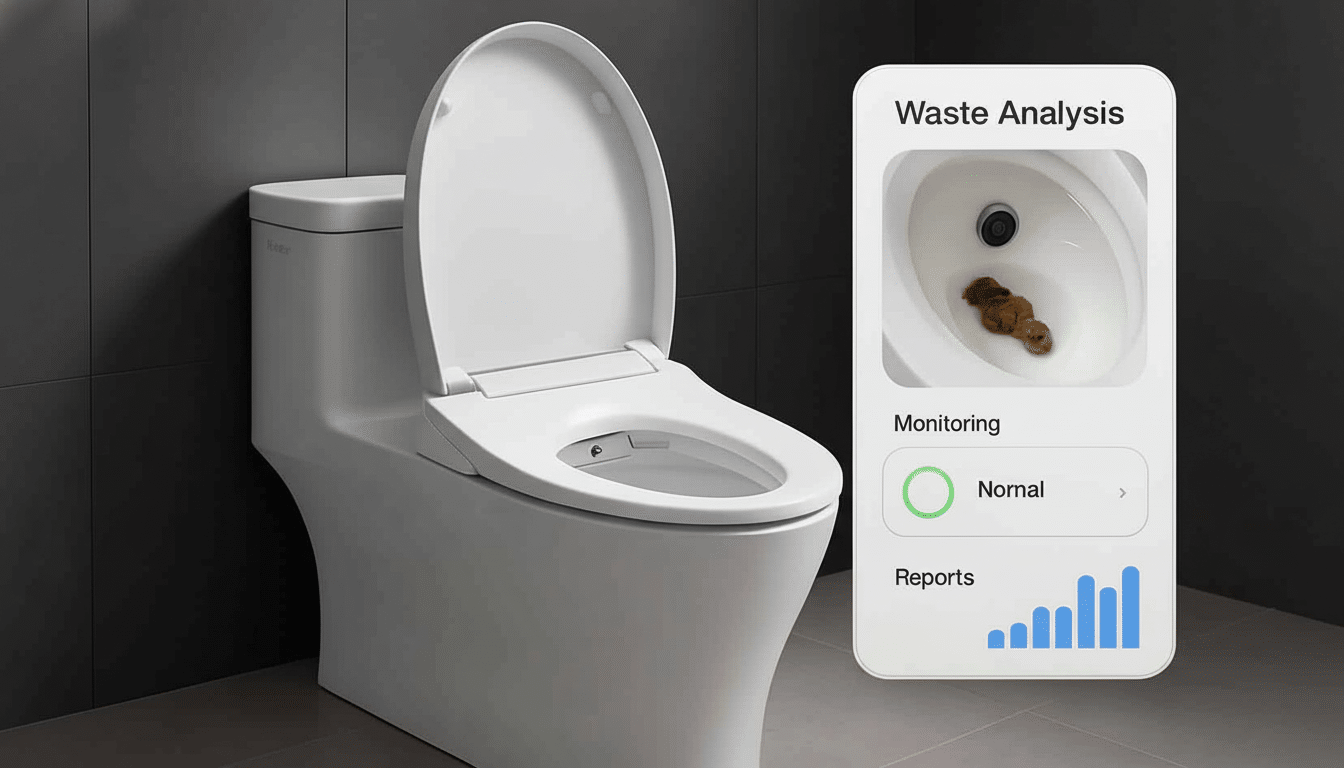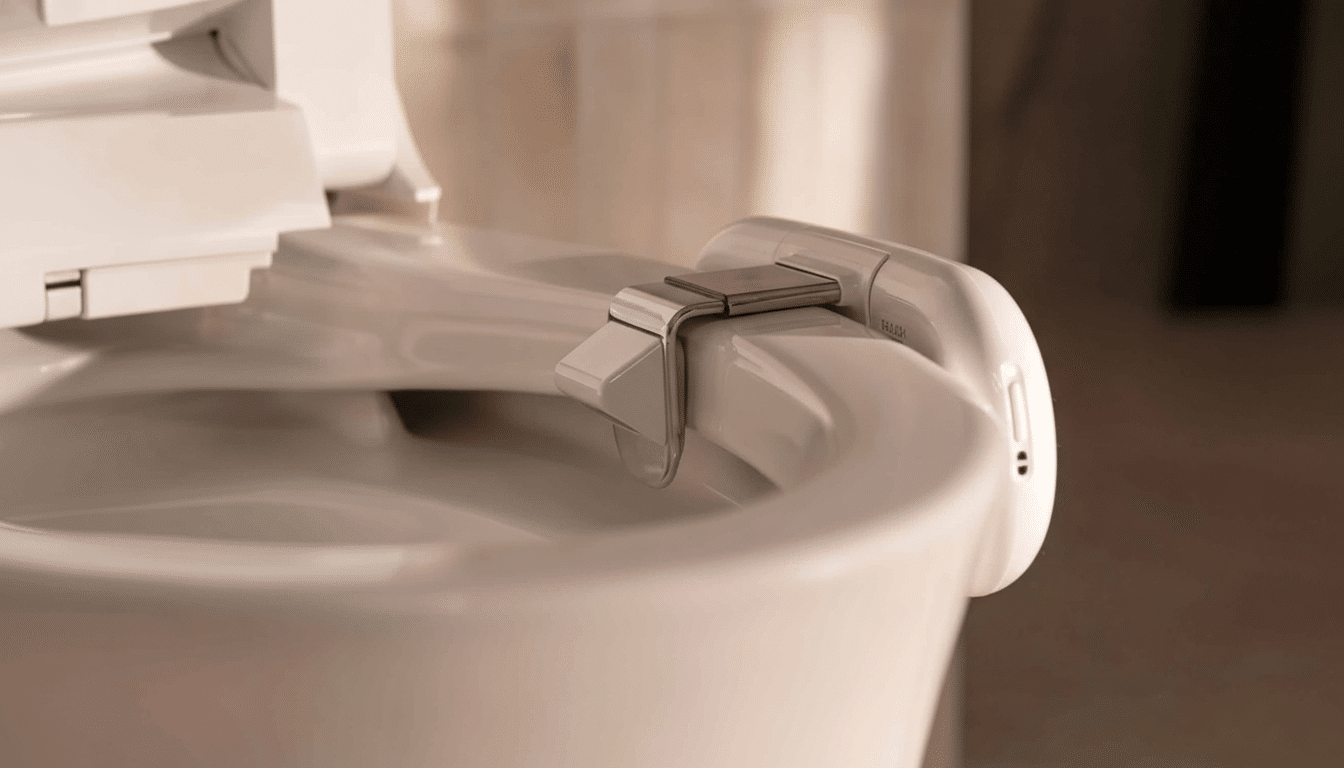Kohler is taking the quantified-self movement to new places with Dekoda, a smart toilet attachment that photographs and analyzes what you’re leaving in the bowl. The device, which tethers to the rim, is equipped with optical sensors and spectroscopy to analyze stool and urine, delivers potential blood alarms and turns your everyday bathroom time into health data that can be trended in the Kohler Health app, all for $599.
The Dekoda System: How the Smart Toilet Works
Dekoda, which sits on the rim of a toilet and takes photos of what happens when you use it, uses a camera along with light-based analysis to evaluate color, shape and consistency. Spectroscopy enables the system to analyze how light reflects off of waste, a technique often used in lab instruments to determine composition. In addition to stool pattern analysis, the device calculates hydration from urine and can send alerts if readings appear to be outside norms.

To prevent multi-user households from getting crossed, Dekoda works in tandem with a wall-mounted remote that registers the person by scanning their fingerprint when they wish to use the toilet. Kohler says the information is end-to-end encrypted, and it notes that the optics are pointed into, not out of, the bowl. It’s in the Kohler Health app (currently for iOS, with Android on the way) that results, trends and alerts are seen.
What It Tells Us About Health and Why We Care
Your stool is a surprisingly delicate indicator of gut health. Altered frequency, form and color — often described using the Bristol Stool Scale — can suggest constipation, diarrhea, malabsorption or irritation. Hydration status also appears in the color and concentration of urine. Dekoda’s pledge is to automatically standardize such observations, eliminating the guesswork, and improving users’ ability to recognize patterns they might otherwise fail to see.
The stakes aren’t trivial. Gastrointestinal diseases are common in adults, and irritable bowel syndrome is reported to affect about 10-15% of the world population by larger clinical centers. Colorectal cancer is one of the most common causes of cancer death in this country, and a red-flag symptom is bleeding from the rectum. A device that consistently signals abnormal color or suspected blood may spur conversations with clinicians earlier, even if it can’t diagnose disease by itself.
There are caveats. Optical analysis has to factor in variables including lighting, water clarity and toilet bowl geometry. Research-grade systems often correct for these with precise illumination and control of the distance from camera to sample; consumer devices have to be just as consistent in the messy real world. Users should be prepared to experience some false alarms or misses, so that alerts are a cue for seeking a professional (not definitively identifying disease).

Questions About Privacy And Data Security
Consumer app-based health data is not always subject to HIPAA, for which providers, plans and their business associates are the usual suspects. That puts offerings like Dekoda under the umbrella of consumer protection and privacy laws such as the Federal Trade Commission’s Health Breach Notification Rule for some apps and services. Kohler’s end-to-end encryption and reliance on biometric user identification are helpful design decisions, but prospective buyers may want to evaluate data-retention policies and sharing practices, as well as deletion controls, before flipping the switch.
Pricing, App Support, Subscription Plans and Availability
The hardware lists at $599. Kohler Health plans begin at $6.99 a month or $70 per year for one person; family plans for the household, with up to five users, can be purchased for $12.99 a month or $130 a year. Dekoda is powered by a removable, rechargeable battery and comes with a USB charging cable. If it’s on your want list, now’s the time to preorder, and watch for shipments coming soon after.
Smart Bathroom Competition and Ongoing Research
While many such products were strictly lab demonstrations until recently, smart toilet concepts have come to market in recent years. Stanford University researchers have worked on a toilet for detecting disease, while Toto has unveiled a Wellness Toilet concept that analyzes excreta, which its users would then enter into an app to measure their lifestyle effectively. On the urine side, Withings’ U-Scan pod is giving cartridge-based testing its place in the bowl. Dekoda positions itself in this nascent sector by emphasizing optical stool analysis combined with hydration monitoring inside a mainstream brand’s ecosystem.
Bottom Line: What Dekoda Could Mean for Everyday Health
Dekoda is an ambitious effort to make monitoring gut health invisible and automatic. If its imaging and spectroscopy are faithful enough, it could assist users in catching important changes at an earlier stage, particularly with hydration and potential bleeding. Still, it’s a wellness device — not a diagnostic test — and its worth will hinge on quality of data, responsible privacy practices and how seamlessly it fits into everyday life. For the right users, the bathroom may be the next frontier of personal health data.

